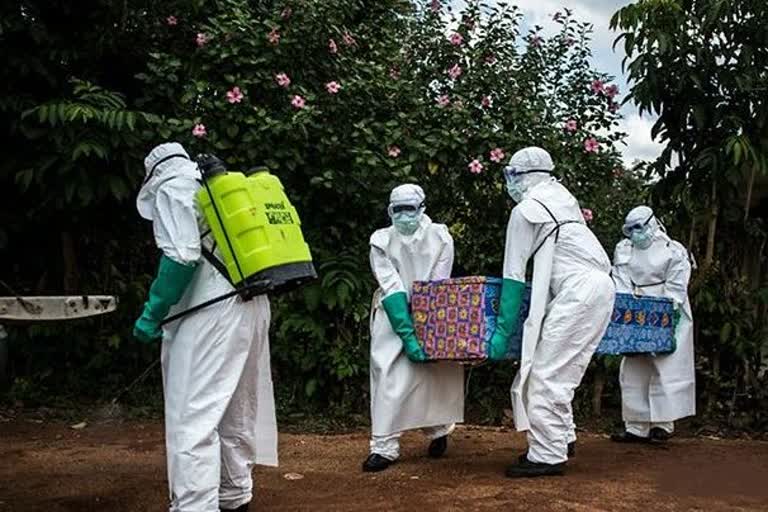किनशासा: कांगो लोकतांत्रिक गणराज्य (डी आर कांगो) में इबोला बीमारी के कारण एक हजार से ज्यादा लोगों की मौत हो चुकी है. अधिकारियों ने इस बात की जानकारी दी.
जानकारी के साथ ही स्वास्थ्य कर्मियों ने आगाह किया है कि अशांत क्षेत्र में असुरक्षा के भाव की वजह से यह बेहद संक्रामक विषाणु 'गहरी चिंता की स्थिति' उत्पन्न कर रहा है.
खतरनाक और जानलेवा है इबोला
रिकॉर्ड के मुताबिक यह महामारी दूसरे सबसे भयावह प्रकोप का रूप ले चुकी है. इससे पहले इस महामारी के चलते 2014 से 2016 के दौरान पश्चिम अफ्रीका में 11,300 से अधिक मौतें हुईं थी.
पढ़ें: डीआर कांगो में एक ही दिन में इबोला से 26 मौतें
आपको बता दें कि महामारी के प्रकोप को रोकने के प्रयास यहां जारी संघर्षों की वजह से तो प्रभावित हो ही रहे हैं लेकिन समुदायों के भीतर एहतियाती उपायों, स्वास्थ्य सुविधाओं एवं दफनाने के सुरक्षित तरीकों के प्रति प्रतिरोध भी इसमें बाधा बन रहे हैं.
स्वास्थ्य मंत्रालय ने साझा की जानकारी
स्वास्थ्य मंत्रालय ने शुक्रवार देर शाम के एक अपडेट में कहा, 'कुल मिलाकर 1,008 मौतें (942 पक्की एवं 66 संभावित) हुई हैं.'
WHO ने जताई थी रोकने की उम्मीद
विश्व स्वास्थ्य संगठन (WHO) ने शुरुआत में उम्मीद जताई थी कि वह इस प्रकोप को रोक सकता है. इस दावे के लिए एक नये टीके को आधार बनाया गया था. लेकिन पिछले कुछ हफ्तों में WHO के वरिष्ठ अधिकारियों ने माना है कि असुरक्षा, वित्तीय संसाधनों का अभाव और स्थानीय राजनीतिकों की तरफ से लोगों को स्वास्थ्य कर्मियों के खिलाफ करने से इसे रोकने के प्रयास गंभीर रूप से प्रभावित हुए हैं.
WHO के हेल्थ इमरजेंसीज प्रोग्राम के कार्यकारी निदेशक ने शुक्रवार को जिनेवा में कहा, 'हम मुश्किल एवं अस्थिर स्थिति का सामना कर रहे हैं.'



